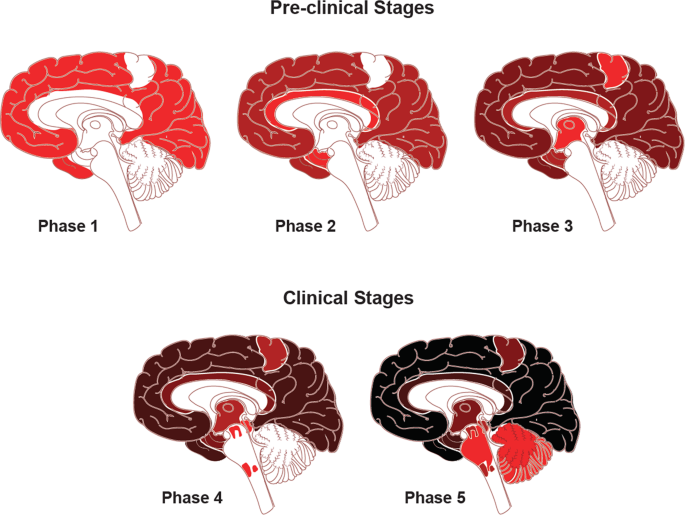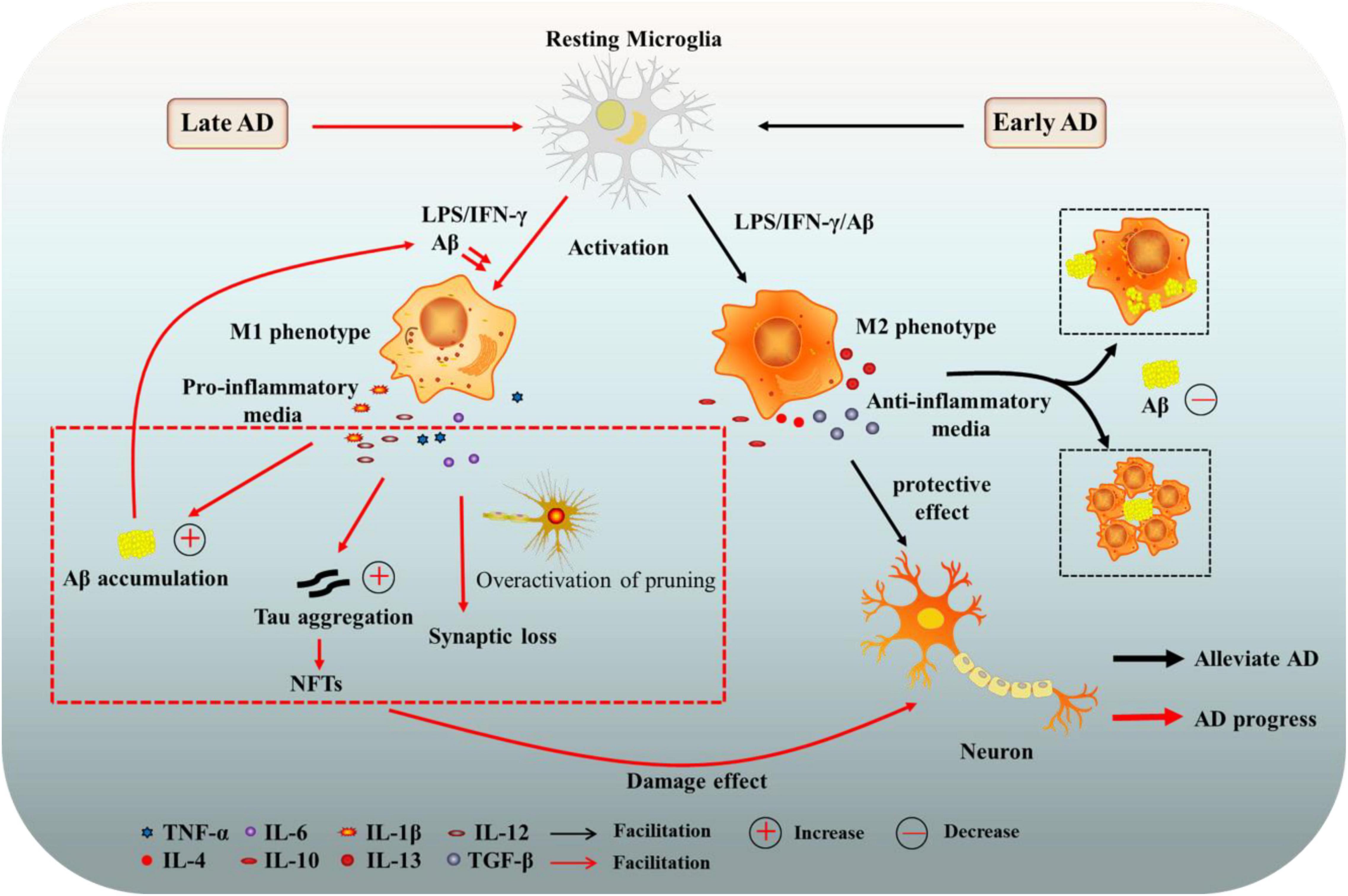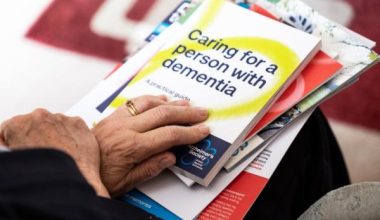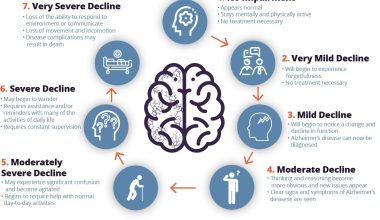As an Amazon Associate, I earn from qualifying purchases
The seven stages of Alzheimer’s disease are no impairment, very mild decline, mild decline, moderate decline, moderately severe decline, severe decline, and very severe decline. These stages range from a state of no noticeable symptoms to profound cognitive impairment.
Understanding Alzheimer’s disease and its progression is crucial for patients and caregivers alike. This neurological disorder gradually deteriorates memory and cognitive functions, significantly impacting daily life. The seven-stage framework helps identify the extent of the disease, providing insights into the expected changes and necessary care strategies.
Early stages may include mild forgetfulness, while later stages involve severe brain damage, leading to the loss of the ability to communicate and respond to the environment. Knowing these stages equips families with the ability to plan for appropriate support and interventions, ensuring that those affected by Alzheimer’s receive the best care throughout the progression of the disease.

Credit: www.nature.com
The Unfolding Of Alzheimer’s: A Gradual Descent
The journey through Alzheimer’s disease is a progressive decline that affects each individual differently. This silent ailment unfolds in stages—slowly eroding memory and cognitive functions over time. Understanding these stages is crucial for caregivers and families to prepare and provide the needed support.
Early Signs: More Than Just Memory Loss
Alzheimer’s disease begins quietly, often mistaken for typical age-related forgetfulness. Early signs go beyond memory problems:
- Difficulty with everyday tasks can signal a change from normal behavior.
- A noticeable shift in planning abilities or solving problems can emerge.
- Changes in mood or personality may occur, with increased anxiety or agitation.
Recognizing these signs early is vital for timely intervention and care planning.
Tracking The Changes: From Mild To Severe
As Alzheimer’s progresses, symptoms extend from mild to severe impairment. The disease’s trajectory includes:
| Stage | Cognitive Decline | Impact on Daily Life |
|---|---|---|
| Mild | Memory lapses, language problems | Difficulty with complex tasks |
| Moderate | Confusion, difficulty recognizing people | Inability to manage personal care |
| Severe | Loss of awareness of environment | Full-time care needed |
Tracking these changes helps tailor care and improve life quality as Alzheimers evolves.
Stage One: The Silent Prelude
Understanding the journey of Alzheimer’s disease begins with Stage One. This phase is often undetected because it quietly unfolds without any outward signs. Despite its silent nature, the brain undergoes subtle shifts that set the stage for future developments.
Cognitive Health In The Clear: No Detectable Symptoms
The everyday life of someone in Stage One appears normal. Memory and cognitive abilities function well. Friends and family see no change. To the outside world, everything remains status quo. Medical tests typically find nothing amiss, making this stage particularly tricky to identify.
What’s Happening Beneath: Invisible Changes
While outward symptoms are absent, the brain is not at rest. Unseen biochemical alterations begin to take place. These are the seeds of Alzheimer’s, planted and slowly germinating without notice. They are the hidden prelude to a complex condition that will gradually unfold.
Stage Two: When Forgetfulness Begins
As we journey through the stages of Alzheimer’s disease, Stage Two marks the subtle onset of memory struggles. Often dismissed as normal forgetfulness associated with aging, individuals may begin to notice small lapses in memory. It’s crucial to recognize these changes early to manage and adapt to the condition effectively.
Subtle Memory Lapses: Misplacing Objects
Lost car keys, misplaced glasses, or forgotten names—these are the signs that creep into daily life during the second stage of Alzheimer’s. Simple acts of forgetfulness can seem harmless, but they might hint at a deeper issue. Family members and the individuals themselves might brush them off, yet acknowledging these lapses is the first step in addressing the situation.
The Overlooked Symptoms: Mild And Manageable
Many tend to miss these early warning signals because they are mild and manageable. Daily tasks and routines remain unimpacted, which makes the symptoms easy to overlook. It is vital to spot these changes to provide support and strategies that help maintain independence.
- Forgetting recent conversations
- Difficulty finding the right word
- Challenges in making plans or decisions
Recognizing these behaviors allows for early intervention. This could involve tools like reminders or organizational systems to cope with memory lapses. Early professional consultation can also make a significant difference in managing the progression.
Stage Three: The Tipping Point
Stage Three of Alzheimer’s disease marks a pivotal moment in the progression. It’s here that subtle changes begin to surface. They hint at deeper cognitive issues ahead. Individuals in this stage may still function independently. Yet, telltale signs emerge, indicating a shift toward more serious impairment.
Recognizable Struggles: Work And Social Impacts
Personal performance at work starts to decline noticeably during Stage Three. Simple tasks may seem challenging. Organizational skills often wane. Concentration levels drop. Socially, individuals might avoid once-loved group activities. They can struggle to keep up with conversations, or they may repeat themselves frequently.
- Difficulty with complex tasks
- Decreased work performance
- Avoidance of social situations
The impact of these struggles extends to their personal lives. People close to them start seeing the changes. Friends may begin questioning if something is amiss.
Family And Friends Notice: When Concerns Arise
Families and friends often first spot that something is wrong during this stage. Loved ones might recognize increased forgetfulness. They note the individual’s frequent hesitancy in finding the right words or names. It’s common for family members to express concern. They might urge a visit to a healthcare provider for further assessment.
| Signs Noticeable by Others | Suggested Actions |
|---|---|
| Increased forgetfulness | Encourage a medical evaluation |
| Difficulty with finding words | Discussion about cognitive health |
| Changes in behavior | Monitoring for safety |
Stage Four: Independence Fades
In Stage Four of Alzheimer’s disease, a critical turning point surfaces. Here, not only does a person’s ability to handle complex tasks diminish significantly, but also their grasp on independence begins to slip away. This stage, often considered
Daily Tasks Become Challenging: The Need For Assistance
- Handling finances grows increasingly daunting.
- Remembering important dates or events becomes a struggle.
- Complex tasks that require concentration are avoided or incomplete.
As these challenges mount, it becomes evident that support from family or caregivers is no longer optional but essential for maintaining safety and quality of life. Assistance with day-to-day activities such as paying bills, cooking, or cleaning is often required.
Personality Shifts And Withdrawal: The Emotional Toll
Alzheimer’s disease takes more than just a cognitive toll—it reshapes one’s emotional landscape. Changes in behavior are profound:
- Social withdrawal becomes more noticeable.
- Irritability can surge in previously calm individuals.
- Mood swings may occur with no clear cause.
These changes can strain relationships as the person becomes more distant or disconnected from their usual social circles. Loved ones must navigate a delicate balance—offering care while respecting the individual’s dignity and sense of self.
Stage Five: Navigating Severe Decline
In the journey of Alzheimer’s disease, reaching Stage Five represents a pivotal turn. This is when independent living becomes too risky. Loved ones may need constant support to manage their daily lives. Safety and communication turn into the core focus for caregivers and family members. Understanding the challenges faced in Stage Five helps caregivers provide the necessary care with compassion and awareness.
Loss Of Autonomy: Round-the-clock Care
Individuals with Alzheimer’s at this stage experience a significant loss of autonomy. Daily tasks become impossible to do alone. These may include:
- Dressing
- Personal hygiene
- Eating
Caregivers step in to offer round-the-clock care. This might involve:
- Scheduling day-to-day activities
- Setting up a safe living environment
- Assisting with basic needs
It is crucial to ensure the environment is safe and comfortable. This may call for home modifications or specialized equipment to support mobility.
Communication Breakdown: The Struggle To Connect
Communication becomes a major challenge. Loss of cognitive functions leads to:
- Difficulty in expressing thoughts
- Problems understanding others
- Frustration during conversations
Patient and supportive communication is key. Caregivers use strategies such as:
- Using simple words and sentences
- Maintaining eye contact
- Encouraging non-verbal communication like gestures
This approach eases the struggle, fostering better connections between caregivers and their loved ones.
Stage Six: The Sunset Of Memories
In the journey through Alzheimer’s, Stage Six, often termed ‘The Sunset of Memories,’ emerges as a time of significant transformation. As memories continue to fade away, individuals and their loved ones face new challenges. In this critical phase, understanding what to expect can provide comfort and prepare caregivers for the road ahead.
Recognizing Faces: A Fading Ability
As individuals progress to Stage Six of Alzheimer’s, the ability to recognize loved ones becomes increasingly difficult. Faces that once brought joy and comfort may now seem unfamiliar. This change can be distressing for both patients and their families.
- Photos can help trigger memories and may sometimes prompt recognition.
- Simplified social settings might ease the stress caused by confusion.
- Speaking in clear, gentle tones is key to better communication.
The World Shrinks: Mobility And Awareness Diminish
The physical world of those at Stage Six undergoes a drastic reduction. Mobility issues mean the once-expansive world becomes much smaller. Individuals may start to spend larger amounts of time in bed or seated in familiar places.
| Aspect | Impact in Stage Six |
|---|---|
| Mobility | Need assistance with moving and can no longer walk independently. |
| Awareness | Difficulties identifying their surroundings, even in familiar settings. |
| Day-to-Day Tasks | Needs help with dressing, bathing, and toileting. |
Adapting living spaces and providing compassionate support can make all the difference in ensuring safety and comfort. Routine is essential; continuity can bring a sense of stability. Despite the challenges, moments of joy can still be found and cherished.

Credit: jnm.snmjournals.org
Stage Seven: The Final Chapter
Alzheimer’s disease has a devastating final stage. This stage strips away independence. Loved ones may not speak or control movements. They need constant care. This period is tough for families. Understanding what to expect can provide some comfort.
Total Dependence: The Burden Of Care
In stage seven, individuals with Alzheimer’s become completely dependent on others for care. The tasks they once managed alone now require help. Common needs include:
- Feeding: Patients may need assistance with eating and drinking.
- Personal Care: Bathing and toileting assistance is necessary.
- Mobility: They may be bedridden or require a wheelchair.
Carers face physical and emotional demands. The responsibility is enormous. Respite care and support groups can be vital. They offer rest and emotional support.
Saying Goodbye: Bereavement And Support For Families
The final stage of Alzheimer’s also means preparing to say goodbye. This period is filled with emotional challenges. Families experience grief even before the loss. Support is crucial. Look to these resources:
| Support Type | Description |
|---|---|
| Counseling | Professional help to talk through emotions. |
| Support Groups | A space to share experiences with those in similar situations. |
| Hospice Care | Special care aimed at providing comfort to the patient. |
These services offer families a way to cope. They provide comfort. They help with the grieving process. Embracing this support can make a significant difference during this heart-wrenching chapter.

Credit: www.frontiersin.org
Frequently Asked Questions On 7 Stages Of Alzheimers Disease
How Long Does Stage 7 Alzheimer’s Last?
Stage 7 Alzheimer’s, the final phase, typically lasts between 1. 5 to 2. 5 years. Each patient’s experience can vary in duration.
How Quickly Does Alzheimer’s Disease Progress?
The progression of Alzheimer’s disease varies but generally unfolds over 4 to 20 years after onset. Each individual experiences a unique pace with different rates of symptom advancement. Early detection and treatment can impact the progression timeline.
What Is The Average Age Of Death From Alzheimer’s?
The average age of death for those with Alzheimer’s is around 80 to 85 years. Factors such as genetics and overall health can influence this age range.
What Stage Of Alzheimer’s Affects Walking?
Alzheimer’s typically impacts walking during the later stages. Mobility loss can occur in the moderate to severe phases, known as stages 5 to 7.
Conclusion
Understanding the seven stages of Alzheimer’s helps us navigate this complex condition. Caring for a loved one with Alzheimer’s demands patience and knowledge. Awareness equips us for the journey ahead. Embrace support networks and medical advice. Together, we can manage the challenges Alzheimer’s presents.
As an Amazon Associate, I earn from qualifying purchases






